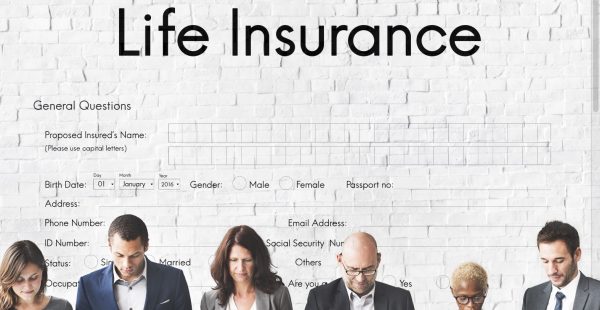Claims management bullying – Part 2

Financial Newswire’s life/risk expert, Col Fullagar, and whose business involves helping resolve claims disputes, continues his examination of bullying in claims management noting that, in Part 1 he discussed examples of Psychological bullying citing:
- Claimant Shutout,
- Attack as Defence,
- Onerous Requirements, and
- Change Mismanagement.
A few last examples of Psychological Bullying will be detailed prior to moving onto other types of bullying behaviour.
To continue ……….
- Negative Reinforcement
Something the long-term claimant will have to look forward to is the mind-numbing completion of progress claim forms often every month. These forms will ask the same questions about What can and can’t you do? What are your symptoms? etc. Every month the claimant is reminded of what has happened to them and the restrictions they have to live with. Emotional bullying or just negative reinforcement?
One claimant expressed it thus: “Unfortunately for me the insurers behaviour has been nothing short of disgraceful. Their continual intrusion and interrogation only reinforces it’s not OK to be not OK.”
Whilst on the subject of claim form completion, two outstanding examples:
“In regard to your claim form forwarded 11 September, whilst I appreciate that your address has not changed in 12 years, it is important that you complete the question in its entirety and do not put “No Change” in any of the requested fields unless the question specifically asks if there has been a change.” and
“Please be advised that the current way in which the form is being completed is insufficient. Such as Question 10 where you state “As per above”. We note the claim form is a legal document, and you need to be specific in terms of your answers. We also require the dates and duties of each day worked. Please refrain from “Same as Stated”, “Same as other page” and squiggly lines.”
- Gaslighting
The online definition of Gaslighting is “ ….. a psychological manipulation tactic that involves making someone doubt their own reality. It’s a form of emotional abuse that can cause confusion, anxiety, isolation, and depression.”
Forms of Gaslighting include:
Misquoting – “You recently advised that you were unable to provide the monthly profit and loss …” When, in fact, the claimant simply asked for a time extension as they were holidaying in an area where internet access was poor. Whilst the difference may seem trivial, when it happens again and again, the impact adds up.
Misquoting may also manifest as the claimant’s position being erroneously summarised, for example when a complaint is made. Having repositioned the complaint, a response is provided which miraculously avoids the real issue.
Another form of Gaslighting is not apologising in situations where an apology is warranted. A recent and shocking example involved an insurer obtaining a medical file from the claimant’s doctor without authority to do so. To make it worse, the act was only acknowledged when a direct challenge was made but even then, there was no apology.
As for the claimant’s reaction “My immediate reaction was to feel physically ill. If my insurer was prepared to breach such an important medical agreement and pretend they didn’t have it what else were they capable of”
A further example was the claimant detailed earlier in this article ie the one IDR beat up. After 18 months of investigation and accusation, the insurer admitted the Duty of Disclosure had been met. “We have now closed our investigation. Thank you for your patience during this process.” To bastardise a line from The Castle “How’s the Sincerity!”
The worst examples are, however, when a claimant whose position has merit is told they are wrong. This could be a disputed claim or administrative matter where a compelling counter case has been provided, and the insurer treats it with apparent disdain. The earlier story of Hildy is a good example.
Verbal Bullying
- Factual Interrogation
Sometimes aspects of a claim may be unclear, so the insurer appropriately seeks clarity. One weapon in their arsenal is the Factual Interrogation, or to use the insurer’s terminology, the Factual Interview.
Sadly, too often, those who agree to the interview, and to be honest, it’s not like they are given a choice, find it little short of an interrogation bordering on entrapment.
It is not unusual for the insurer to provide little or no detail of what is to be discussed but if pushed, the insurer may offer up “We want to clarify your pre-disability financial position” or “We want to check on your current work duties.”
When one insurer was asked for a list of the initial questions, the response was: “ “ …… we are not obligated to provide the list of questions in advance.”
Proffering up cobblers is indeed another form of bullying..
Factual interview questions are often asked without context, for example “How many hours a week are you working?” rather than, “Your policy allows you to work up to 10 hours a week so can you please advise how many hours you are currently working.”
If the interviewer knows what they are after but does not share that with the claimant, there is an imbalance of power which can lead to, you guessed it !!
One adviser who attended a client’s factual interview conducted by an ex-member of the constabulary reported: “I found the interviewer very confronting and very rude to my client. He appeared insensitive to my client’s feelings and medical condition.”
Another claimant who attended a factual found it so unsettling he went straight from the interview to his treating doctor to seek medical assistance.
Bullying? Nah, never happens !!
- Legal Involvement
As tough as a factual might be for the claimant, it is nothing compared to what can happen when an insurer’s internal legal counsel or an external solicitor get involved.
“Man-up” was the response of one legal eagle when the suggestion was made that legal discussion might benefit from less aggression.
Written Bullying
- Letters of Intimidation
Several years ago Paul ran a successful small business employing several people; then he suffered a nervous breakdown. Whilst Paul observed essentially from the sidelines, the business continued to operate but at a slowing pace.
The insurer became concerned Paul was involved in the business but rather than tell him they simply swamped him (from his perspective) with claims requirements.
Paul had no idea what was going on, so the adviser asked: “ … it would assist Paul’s well-being and understanding of the reasonableness of your requirements if you could advise him if you have a management plan in regards to his claim and if so, what is that plan.”
Initially the question was ignored so there were two follow ups. Finally, after 6 weeks the response came: “You have requested information relating to the current strategy relating to your claim. Our strategy, as with all claims, is to ensure that you continue to meet the definition of either totally or partially disabled under the policy terms and conditions.”
Get that up ya !!
Another assessor when similarly questioned, responded that it would be preferred if the insured would simply supply the requested information and then “Leave us alone so we can do our job of assessing the claim.”
Another responded “We know what we need to assess the claim. Please just give us what we ask for.”
What better way to empower the claimant with that all-important sense of inadequacy or as one claimant put it: “The whole claims process made my health problems worse. I began to fear any correspondence from the insurer to the point I felt I would be better off without them.”
One last example of written intimidation is the dastardly due date …… “The following information is due by (DATE).” The absence of an “or what” leaves the claimant to fill in the blank with anything from nothing will happen to the benefit payment will not be made. Nothing like a bit of uncertainty to get the heart racing.
- Letters of Insensitivity
The contention is made that claim letters should avoid expressing feelings and stick to prudent and professional with the reason being the position of the claimant is unknown, so it is reckless to assume.
One example says it all …… a Terminal Illness payment letter opened with the insurer stating, “We are pleased to advise your claim has been accepted”. Whilst the insurer may have meant it was pleased the policy was doing its job, the reader may have heard the insurer was pleased to confirm that …….. well, you get the idea.
But worse was to come as the letter closed with “We would like to extend our best wishes for your future.” Are you serious !!
- The Financial Controller
There is no greater example of the power imbalance than control of the financial purse strings. The insurer holds them, and the claimant is made repeatedly aware of this by the insurer’s regular communication stating: “In order to enable us to assess your claim and pay benefits we need the following.” It’s subtle but the message is there
If, however, you missed it, there is the equally common “If we do not receive the above requirements by (DATE) we may not be able to pay your benefits when they are due”
Physical Bullying
Benefit Suspension
At best, income protection claimants have taken a 25% income cut. If benefit payments are suspended or even if there is a threat of suspension, the impact on the claimant can be devastating
One claimant received several threats of benefit suspension over a number of months which in part led to the deterioration in his mental condition and his treating psychiatrist recommending he take medical retirement.
Whilst clearly not the intention; this comes close to physical bullying.
- Late and/or Irregular Benefit Payments
What, might the claimant ask, is so hard about making benefit payments on time and yet it is a constant and frequent complaint of claimants
A late benefit payment is simply a short-term benefit suspension which serves to remind the claimant that their financial well-being is not guaranteed but is at the behest of the insurer.
- Independent Medical Examinations
An IME is when a medical specialist, not previously involved in the care or treatment of a claimant, undertakes an examination of the claimant and then reports findings to the insurer.
The claimant is often informed they are required to attend an IME in the benefit payment letter with, at best, a token reason given for it being required “We want to obtain an independent opinion of your claim condition.” For the record, that is what an IME does, it is not a reason for wanting one.
The impact of IMEs on claimants is many and varied, including but in no way limited to:
- Feelings of apprehension as they wait for the date of the IME to arrive with little idea what to expect,
- Feelings of anxiety and embarrassment as they detail their personal and medical history to a stranger knowing full well that a report will be written and read by unknown parties,
- Discomfort and pain as they are prodded and poked to see what restrictions to movement exist, and
- Apprehension as they wait for weeks to find out what was said about them and what will happen to their claim.
Some insurers even take the enlightened approach of not sharing the IME report until the claim assessment has been completed, just to drag out the feeling of uncertainty a bit longer.
One claimant simply and succinctly described the IME as “Degrading and humiliating.”
- Careless Acts
An insured lodged an income protection and own occupation TPD claim. The insureds main occupation was in the media, but she also undertook appearance work.
Without forewarning, the insurer wrote to the insured’s booking agent and unnecessarily made reference to the claim type Total and Permanent Disability.
In only a few moments, the insurer directly and severely impacted on the claimant’s ability to receive any further appearance opportunities if, for example, the TPD claim was unsuccessful.
When the claimant found out, she was distraught. When the insurer found out, there was an indicative shrug of the shoulders but certainly no acknowledgement of error or offering of an apology.
Life Insurance Code of Practice (“the Code”)
Both Versions 1 and 2 of the Code require of insurers a commitment that they will be “Honest, Fair, Respectful, Transparent and Timely.”
Move right along, please …………
Standard 21
The Financial Services Council Standard 21 makes it compulsory for education and training to be undertaken by insurer Representatives, including claim staff, who have interaction with Consumers, including claimants, suffering from Mental Health conditions. Further, the effectiveness of same has to be reviewed.
Be assured a high percentage of the examples noted in this article involve claimants experiencing mental health conditions. So, what happened to Standard 21 or is it the case that without Standard 21 the above would be worse?
Keep moving, please ……….
So What?
Some may look at these situations and suggest “OK the industry is not perfect, but these are simply good examples of poor service”
Some may justify by citing the need for prudent claims investigations to protect the insurer against the evils of fraudulent claims. Fair enough but don’t insurers brag about the ninety plus per cent of claims that are genuine and paid. So how can the few per cent justify inappropriate behaviour towards the many per cent? And even if a claim is less than genuine, does that justify bullying?
As one treating specialist wrote in regard to his patient: “The current level of activity required to comply with the demands of the insurance company is causing significant stress for my patient and in so doing inhibiting his capacity for any further improvement.”
Reducing Bullying
If it is accepted that bullying exists and it is similarly accepted that this is unacceptable, the question should be asked “How can it be reduced?”
Some suggestions for insurers might be:
- Acknowledge. Recognition is a great start.
- Treat the claimant as an adult. If issues arise, raise them openly and respectfully so the claimant knows what is going on. Do not lock them out, work on the issue together
- Presume innocence.
A bad feeling about a claim, the presence of red flags or “It just doesn’t add up” gives a reason for prudent and polite enquiries not for rampant and wholesale investigation.
- Use an intermediary.
An assessor once said to the writer “I like to have direct access to my claimants.” My claimants ?!
A senior claims manager recently travelled the country espousing how Claims Advocates made the management of claims more difficult for the assessor. Could that be because it keeps the process accountable?
Arguably there is merit in working with and through a non-emotionally involved and experienced intermediary such as the claimant’s adviser who can explain the insurer’s espoused position and provide context to the claimant.
This is not to deny direct access, but it is very much to ensure it only happens when the assessor is well trusted and known to be well trained.
A suggestion to advisers, speak up. If examples of inappropriate behaviour are noted, let the appropriate person within the insurance company know. As much as possible, however, focus on the behaviour rather than the person.
Advisers recommend and put in place billions of dollars in risk insurance protection every year. Insurers pay out billions in claims. As before, this is the perfect environment for an industry to be universally loved.
Maybe it’s time to better set about harnessing that potential in part by recognising and eradicating behaviour that is dragging the industry reputation down and robbing some claimants of the peace of mind promised to them.











Zurich’s in hour “doctor” tried to tell me that in fact I did not have cancer, even though my treating specialist provided a report and blood test results.
Not sure what clown they have on the payroll but they eventually paid my claim after causing me undue stress and dragged a simple claim out for months.